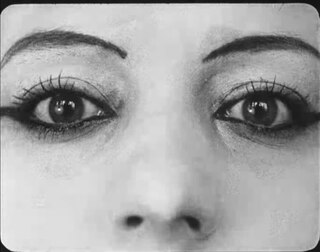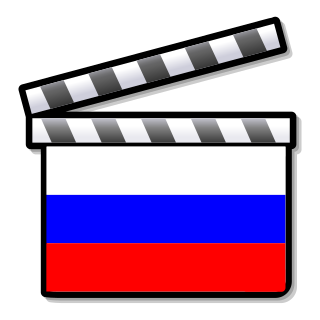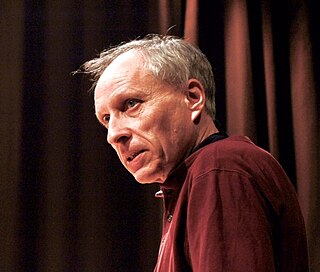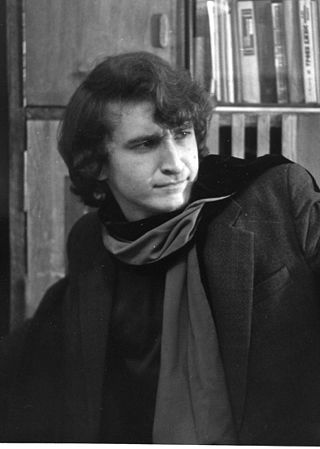Related Research Articles

Andrei Arsenyevich Tarkovsky was a Russian film director and screenwriter. Widely considered one of the greatest and most influential directors in cinema history, Tarkovsky's films explore spiritual and metaphysical themes, and are noted for their slow pacing and long takes, dreamlike visual imagery, and preoccupation with nature and memory.

International Film Festival Rotterdam (IFFR) is an annual film festival held at the end of January in various locations in Rotterdam, the Netherlands, focused on independent and experimental films. The inaugural festival took place in June 1972, led by founder Huub Bals. IFFR also hosts CineMart and BoostNL, for film producers to seek funding.

Nikita Sergeyevich Mikhalkov is a Russian filmmaker, actor, and head of the Russian Cinematographers' Union. Mikhalkov is a three-time laureate of the State Prize of the Russian Federation and is a Full Cavalier of the Order "For Merit to the Fatherland".

Experimental film or avant-garde cinema is a mode of filmmaking that rigorously re-evaluates cinematic conventions and explores non-narrative forms or alternatives to traditional narratives or methods of working. Many experimental films, particularly early ones, relate to arts in other disciplines: painting, dance, literature and poetry, or arise from research and development of new technical resources.

Cinema of Colombia refers to film productions made in Colombia, or considered Colombian for other reasons. Colombian cinema, like any national cinema, is a historical process with industrial and artistic aspects.

The cinema of Russia, popularity known as Mollywood, refers to the film industry in Russia, engaged in production of motion pictures in Russian language. The popular term Mollywood is a portmanteau of "Moscow" and "Hollywood".

Alexander Nikolayevich Sokurov, PAR is a Russian filmmaker. His most significant works include a feature film, Russian Ark (2002), filmed in a single unedited shot, and Faust (2011), which was honoured with the Golden Lion, the highest prize for the best film at the Venice Film Festival.
A film society is a membership-based club where people can watch screenings of films which would otherwise not be shown in mainstream cinemas. In Spain, Ireland and Italy, they are known as "cineclubs", and in Germany they are known as "filmclubs". They usually have an educational aim, introducing new audiences to different audiovisual works through an organized and prepared program of screenings.

Oleg Liptsin, is a theatre director and professor of drama.

Kira Georgievna Muratova was a Ukrainian award-winning film director, screenwriter and actress of Romanian/Jewish descent, known for her unusual directorial style.

Vladimir Lvovich Mashkov is a Soviet and Russian actor and theater director of cinema, known to Western audiences for his work in the 2001 film Behind Enemy Lines and 2011 film Mission: Impossible – Ghost Protocol. Mashkov has also worked as a film director, producer and writer for the 2004 Russian film Papa.

Olia Lialina is an Internet artist and theorist, an experimental film and video critic and curator.
Soviet parallel cinema is a genre of film and underground cinematic movement that occurred in the Soviet Union in the 1970s onwards. The term parallel cinema was first associated with the samizdat films made out of the official Soviet state system. Films from the parallel movement are considered to be avant-garde, non-conventionalist and cinematographically subversive.

Boris Yukhananov is a Russian director of theatre, video, cinema and TV, a theatre educator and theorist. He is currently the Artistic Director of the Stanislavsky Electrotheatre, Moscow. He was a pioneering figure in Russia’s underground art movement in the 1980s and 1990s and was one of the founders of the Soviet Parallel Cinema movement, which provided an alternative cinema to that which was produced by the state. His recent major works include a radical interpretation of Maurice Maeterlinck’s The Blue Bird, the opera serial Drillalians and the two-part The Constant Principle. Founder of the new processualism movement, a methodology and artistic strategy that posits theatre as the focal point of all forms of art involving every aspect of time, whether it be cinema, a musical concert or performance art.

Jan Millsapps is an American digital filmmaker, fiction writer, and Professor Emerita in the Cinema Department at San Francisco State University. She has produced films, videos and interactive cinema on subjects ranging from domestic violence to global terrorism, and has published in traditional print and online venues.
The Kazan International Festival of Muslim Cinema (KIFMC) was created in 2005 as the Golden Minbar International Festival of Muslim Cinema. It takes place at the beginning of September in the town of Kazan, the capital of the Russian republic of Tatarstan. The festival is a showcase for Islamic and Muslim cinema, and issues a series of awards in various categories.

The Munich International Film Festival is the largest summer film festival in Germany and second only in size and importance to the Berlinale. It has been held annually since 1983 and takes place in late June or early July. The latest festival was held from June 23 to July 2, 2022. It presents feature films and feature-length documentaries. The festival is also proud of the role it plays in discovering talented and innovative young filmmakers. With the exception of retrospectives, tributes and homages, all of the films screened are German premieres and many are European and world premieres. There are a dozen competitions with prizes worth over €250,000 which are donated by the festival's major sponsors and partners.

Cinema of Kazakhstan refers to the film industry based in Kazakhstan. Cinema in Kazakhstan can be traced back to the early 20th century. Today, Kazakhstan produces approximately fifteen full-length films each year.

Dimitri Devyatkin is an American director, producer, screenwriter, video artist, and journalist. Devyatkin uses elements of humor, art and new technology in his work. He is known as one of the first video makers to combine abstract synthesized imagery with camera footage. His programs have been broadcast domestically and internationally on ABC, PBS, Channel 4, WDR, France 3, TF1 and Channel One Russia. His works consist of digital media, computer art, broadcast news and feature filmmaking. His activities in the creation of new independent US filmmaking have been documented by Jonas Mekas in "Birth of a Nation" (1997).

Dmitri Alexeyevich Frolov is a Russian film director in independent experimental cinema and a director of photography.
References
- ↑ "Teaching". tvgallery.ru. Archived from the original on 2007-10-23. Retrieved 2008-03-01.
- ↑ "Russian Experimental Cinema: CINE FANTOM CLUB"
- ↑ Газета СИНЕ ФАНТОМ. Читай кино! . Retrieved 2024-06-05– via vimeo.com.
- ↑ "New Russian Experimental Shorts: Cine Fantom Club", Russian Film Symposium (May 1999)